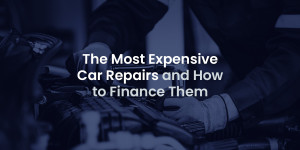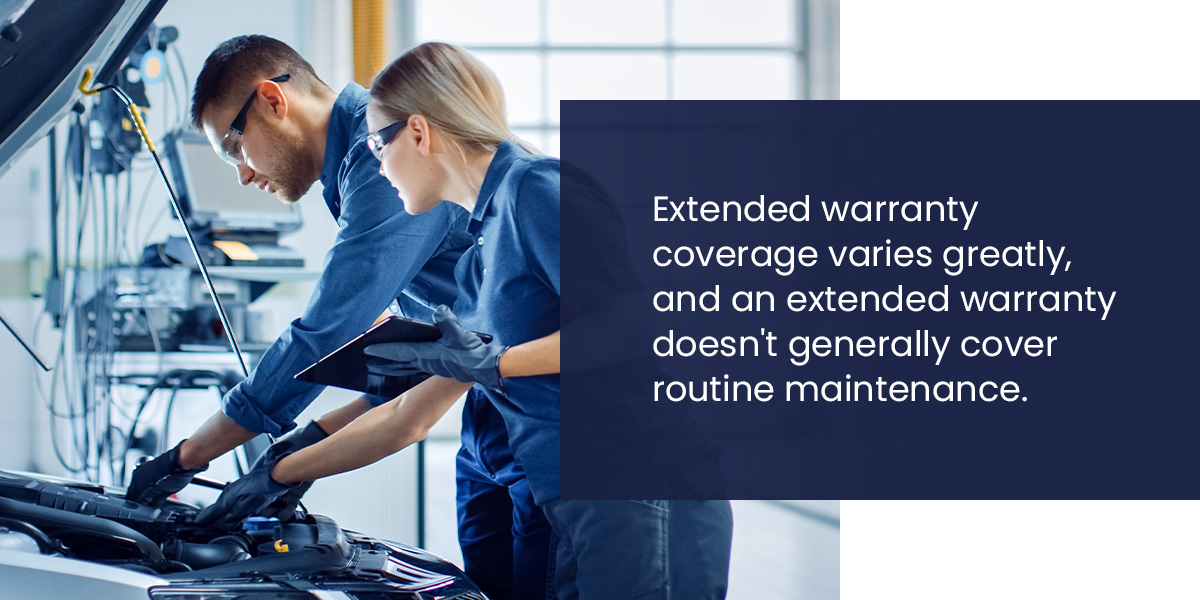
Purchasing a car is a decision that impacts years of your future, even beyond the payment period. After you've finished paying your car off, you'll have to continue making planned payments for inspections, new tires, and battery replacements, not to mention gas. Though you probably try to take the best care of your car to reduce the need for expensive car repairs, parts will break down and need attention from time to time.
In this article, we'll take you through the most expensive car repairs and how to pay for car repairs with limited cash.
What Cars Are the Most Expensive to Repair?
A 2022 study by Motor1 analyzed the 20 most expensive cars to maintain, depending on their average 10-year maintenance and repair costs. Based on national averages, the top five most expensive cars to maintain and the associated costs include:
- Ram 2500-5500: $25,134 to $25,844
- Porsche Cayenne: $20,552
- Porsche Macan: $20,137
- Ram ProMaster City/Cargo Van: $19,870 to $20,061
- BMW X6 M: $18,900
Why Are Car Repairs So Expensive?
A lot goes into the price of car repairs, including the cost of parts, the amount of labor required, and how long a job will take. Premium car brands — like BMW and Porsche — are more expensive to manufacture and come with a higher sticker price, so it makes sense that maintenance costs would be higher, as well. In some ways, you trade saving money for vehicles with extra features that are fun and smooth to drive.
How Much Are Car Repairs?
Let's look at some of the most expensive types of car repairs, how expensive they are, and how you can avoid them. Preventing car repairs helps ensure you can spend your money on other — more fun — pursuits, like weekend road trips, eating at restaurants, and gifts.
1. Engine Replacement
The engine is the powerhouse of your car, so it makes sense that it's one of the most expensive parts to replace or repair. Unfortunately, engines are bound to wear out, especially considering many people drive thousands of miles every year.
Getting a new engine is expensive due to the materials and labor required. Repairing an engine can cost between $4,000 and $7,000. If you're experiencing any of the following signs, it may be time to get your engine checked out:
- Your check engine light is on.
- You notice your car isn't running properly.
- Oil or coolant is leaking from your car.
- You hear thumping or grinding noises.
- There's a sudden increase in exhaust from your engine.
Though engines are bound to wear out as your car gets older and you put more miles on it, you can do a few things to prevent engine wear out. Some solutions include regular oil changes and taking your car in for a professional inspection when you notice the check engine light is on.
2. Transmission Replacement or Rebuild
The transmission transfers the power from the engine to the wheels so your car moves. These parts usually last a long time — as long as they've been properly cared for — but you can expect an expensive replacement should you need one.
If you want to replace your current transmission with an exact copy, costs will likely fall between $3,000 and $7,000. However, the cost will ultimately depend on your car's make, model, and year. Rebuilding your transmission is about half the cost of purchasing a new transmission.
You can try and avoid needing transmission work by keeping transmission fluid fresh. If you drive a manual car, try not to ride the clutch too hard or too often while you shift.
3. Brake Systems
The system that allows you to slow down and stop your car comprises a few parts and pieces — pads, rotors, and calipers. Replacing these items on their own isn't too expensive, but when you need an entire new brake system, you could be looking at costs of more than $1,000.
Making sure your breaks are up to standard is incredibly important for your safety and the safety of other drivers on the road. Quality brake pads should last between 30,000 and 70,000 miles, so it might be time to bring your car into the shop if it's been a long time since you had your breaks inspected.
Some ways to make your brakes last include:
- Leaving space between your car and the car in front of you
- Driving slowly in high traffic to avoid heavy braking
- Never using two feet on your brake pedal
- Coasting where you can
- Starting to coast long before reaching stop signs or stoplights
- Removing heavy items from your car
4. Head Gasket Replacement
The head gasket plays a crucial role in keeping combustion gases, oil, and coolant from leaving the engine by creating a seal between the engine block and cylinder head. It's an expensive replacement that might cost as much as $2,000.
If you need a head gasket replacement, your car might experience these symptoms:
- White smoke from the exhaust
- Bubbles in the radiator
- Fouled spark plugs
- Leaking coolant
- Frothy oil
These parts usually last many years. To avoid a costly replacement, aim not to let your engine consistently overheat — excessive heat can cause the head gasket to blow.
5. Air Bag Replacement
Airbags are one of the most important safety features of any vehicle, so you should prioritize replacing them when necessary to keep you and your passengers safe. Your airbags will need to be replaced if they ever deploy. In addition to the $1,000 to $5,000 cost of replacing airbags, you'll have to deal with the costs of the accident that caused them to deploy.
6. Camshaft Replacement
Your car's camshaft regulates how the engine takes in air. Camshafts rarely break, but if yours ever does, you could be looking at costs of up to $3,000. You can avoid costly camshaft replacements by routinely getting your car serviced and getting oil changes regularly.

How to Pay for Car Repairs
Car repair costs are always inconvenient and unwelcome, and they can create stress when you're operating on a tight budget. However, it's important not to get discouraged. Here are several ways you can finance your car repairs:
Mechanical Breakdown Insurance
Mechanical breakdown insurance (MBI) covers some of the costs associated with mechanical breakdowns. The types of incidents covered by MBI aren't generally covered by your normal auto insurance policy and can include:
- Oil pumps
- Valves
- Transmissions
- Brakes
- Timing gears
Warranties
If you've purchased a new or used car recently, repairs might fall under a factory or dealer warranty:
- Factory or manufacturer warranty: Warranties from a factory or manufacturer are usually included with the purchase of a new car. However, for a repair to be covered by a factory warranty, the incident must result from a factory defect.
- Dealer warranty: Dealer warranties are often included with the purchase of a used car. These warranties can include implied warranties, limited warranties, and full warranties.
You may also receive an extended warranty with your vehicle, which could mean additional protection for you and your car. However, extended warranty coverage varies greatly, and an extended warranty doesn't generally cover routine maintenance.
Mechanic Financing
Some mechanics partner with lenders and can offer their own financing options. For example, the mechanic might offer their own store credit card or interest-free financing for part of the payment period.
Personal Loans
With a personal loan, you can pay the mechanic immediately while spreading your loan payments out over time. Personal loans allow you to make payments that work for you so you're not confined to the mechanic's terms. At Atlas Credit, we can provide a personal loan for car repairs.
Apply for a Personal Loan From Atlas Credit
Atlas Credit makes the process of applying for a personal loan simple. All you need to do is fill out our online application or give us a call toll-free at 903-258-9965. If you apply online, one of our representatives will call you to confirm the details, and then once you eSign the loan documents, Atlas Credit will deposit the money into your bank account.
Unexpected car repair costs can be stressful and overwhelming, but a personal loan can help. Apply for a personal loan from Atlas Credit today, or contact us for more information.



